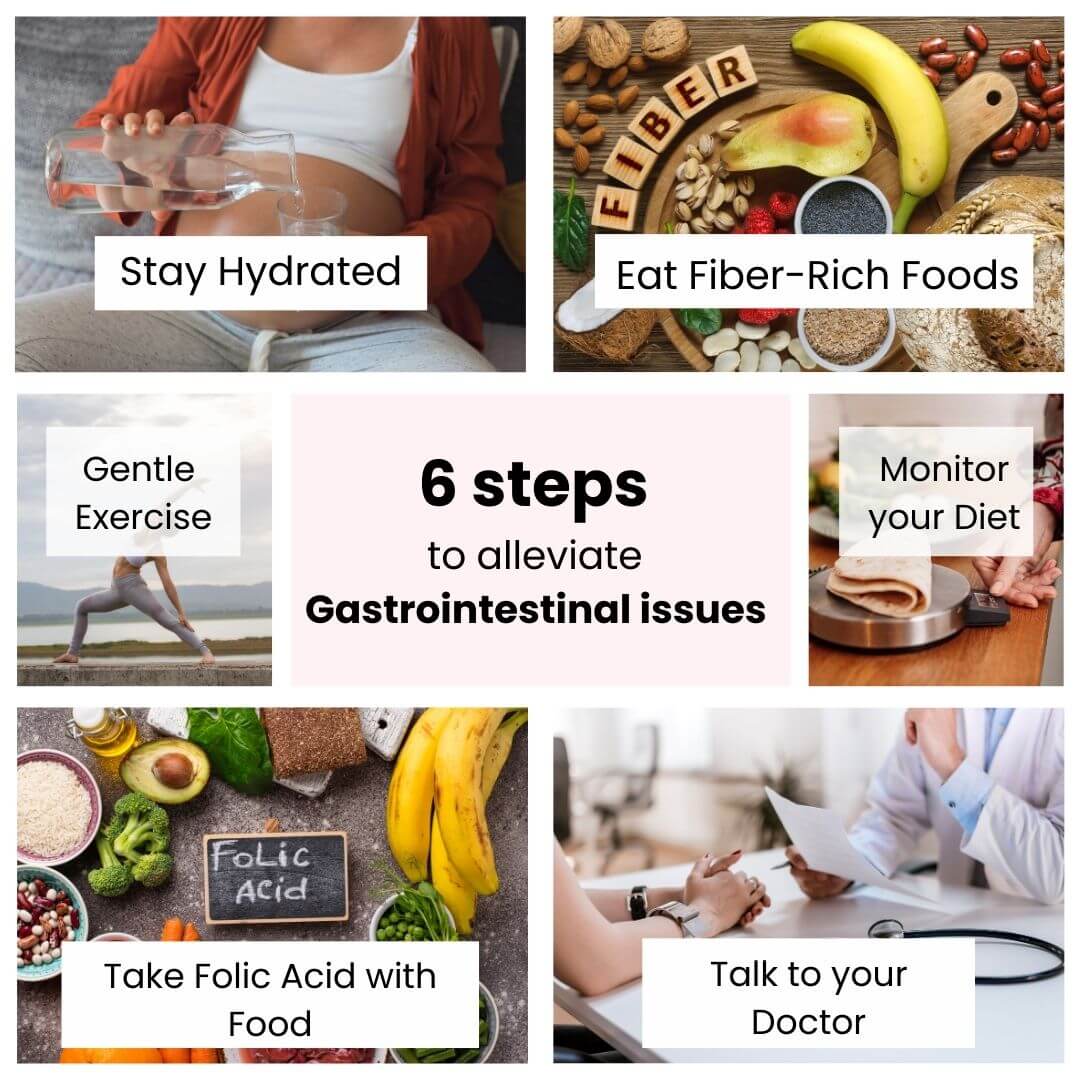Priya, in her first trimester, was experiencing morning sickness, fatigue, and now, after starting her folic acid supplements, she noticed constipation and bloating. She was worried if these new symptoms were due to the folic acid and wanted to know if there was a way to manage them. Google search was confusing for her and she was not sure what to do!
Many pregnant women like Priya face gastrointestinal issues such as constipation and bloating, especially after starting folic acid supplements. These symptoms can be uncomfortable and add to the challenges of early pregnancy. Understanding the cause and finding ways to alleviate these symptoms can significantly improve a mom-to-be’s comfort.
Here are some practical tips to manage constipation and bloating while taking folic acid supplements:
-
Stay Hydrated: Drinking plenty of water throughout the day helps keep things moving in your digestive system. Aim for at least 8-10 glasses of water daily. Hydration can significantly reduce constipation.
-
Eat Fiber-Rich Foods: Include fruits, vegetables, and whole grains in your diet. Foods high in fiber help prevent constipation and promote regular bowel movements. Examples include apples, bananas, oats, and spinach.
-
Gentle Exercise: Light activities such as walking can help reduce bloating and keep your digestion smooth. Even a short, gentle walk after meals can make a big difference.
-
Monitor Your Diet: Avoid foods that are known to cause gas and bloating, such as beans, broccoli, and carbonated drinks. Keeping a food diary can help you identify and avoid these trigger foods.
-
Talk to Your Doctor: If the discomfort is too much, speak with your doctor. They might suggest a different form of folic acid or additional supplements like probiotics to help ease your symptoms.
-
Take Folic Acid with Food: Sometimes taking folic acid with a meal can help reduce stomach upset and bloating. If taking it on an empty stomach causes issues, try pairing it with a snack or meal.

Remember, these side effects are usually temporary and will get better as your body adjusts to the supplement. It’s important to keep taking folic acid as it is crucial for your baby’s development.
Conclusion
Priya found relief by staying hydrated, eating fibre-rich foods, and talking to her doctor. Her symptoms improved, making her first trimester more comfortable. If you have tips or experiences to share about dealing with folic acid side effects, leave a comment below. Your advice could help another mom-to-be!

